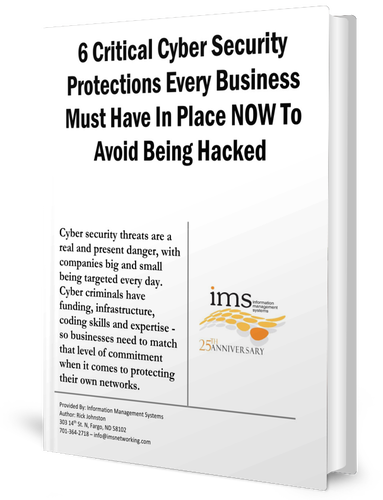
In September 2024, National Public Data confirmed a massive data breach that exposed the personal information of millions of people, including those living in North Dakota, Minnesota, and South Dakota. If you're concerned about your data security, here's what you need to know about this breach and how to protect yourself.
What Happened?
National Public Data, a consumer data broker that specializes in providing criminal records, background checks, and other public records, was hacked. This breach reportedly began in December 2023 when a third-party bad actor infiltrated their systems. By April 2024, a hacker known as “USDoD” posted the stolen data in a notorious criminal forum, and by August, it was made freely available on several breach forums.
The data compromised includes personal information such as names, email addresses, phone numbers, and Social Security numbers for millions of individuals, including those no longer living. In some cases, alternate names and past addresses were also exposed. The breach notice officially reported 1.3 million records, but some lawsuits suggest the number could be as high as 2.9 billion.
Although some of the leaked information is already publicly accessible, the aggregation of this data in one place poses a significant risk, as it can be used for identity theft, phishing schemes, and fraudulent financial activities.
Why Should You Be Concerned?
You may be thinking, “Is this really a big deal if the data is already online?” Yes, it is. Having all this personal information consolidated makes it much easier for cybercriminals to carry out identity fraud. For example, details like old street addresses and partial Social Security numbers can be used to bypass security questions and gain access to your personal accounts.
Moreover, cyber experts predict a rise in phishing and smishing attacks. These targeted attacks, often in the form of fraudulent emails or text messages, can deceive individuals into revealing more sensitive information.
Could You Be Affected Even if You Don’t Know National Public Data?
Absolutely. Even if you’ve never heard of National Public Data or done business with them, other entities like landlords, employers, or investigative services may have accessed your personal information through this company. This means your data could have been part of the breach, even if you never interacted with the organization directly.
What Can You Do To Protect Yourself?
Living in North Dakota, Minnesota, or South Dakota doesn’t make you immune to these threats, and it’s critical to take steps to secure your personal information:
Step 1: Check if Your Data Was Exposed
Visit https://npd.pentester.com to check whether your personal data has been compromised. If your information is at risk, act quickly to protect yourself.
Step 2: Freeze Your Credit
Request a copy of your credit report and immediately freeze your credit. This prevents criminals from opening new credit lines in your name. Contact the three major credit bureaus (Equifax, TransUnion, and Experian) to initiate a freeze. The process is free and can be completed online in minutes.
For families, it’s recommended to freeze the credit of anyone in your household over the age of 18, as their data may also be at risk.
Step 3: Watch Out for Phishing Scams
Be wary of any unexpected emails, phone calls, or text messages. Cybercriminals will likely use this breach to launch phishing and smishing attacks, trying to trick you into giving away more personal information or clicking malicious links. Always verify the authenticity of such communications before taking any action.
Protect Your Business and Customers
As a business owner in North Dakota, Minnesota, or South Dakota, it's your responsibility to ensure that your customer and employee data is safe from cyber threats. If you want to ensure your network is secure and your data hasn’t been compromised, reach out to us for a FREE Security Risk Assessment. This deep dive into your network will provide you with a clear blueprint for tightening your security and avoiding future breaches.
Don’t wait until it’s too late – call our office today to schedule your assessment! To book yours, call our office at 701-364-2718 or click here.



